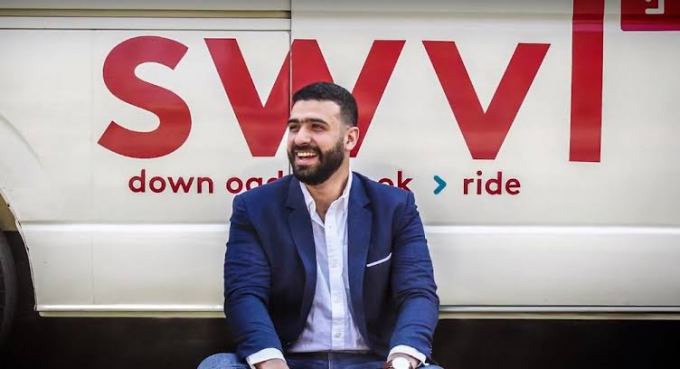Fintech Startup Kacha Now Authorized to Launch Full-scale Commercial Operations in Ethiopia
In a groundbreaking move, the National Bank of Ethiopia (NBE) has granted its official nod to Kacha Digital Financial Service S.C., greenlighting the commencement of its full-scale commercial operations. Kacha, a trailblazing fintech enterprise and the pioneering private payment instrument issuer within the nation, has now been given the regulatory green light to set the wheels of its financial innovation in motion.
The company’s journey to this significant juncture has been marked by an intensive phase of testing and refining its suite of mobile money and assorted financial services. Operating under the ussd code *677# and boasting dedicated applications for both Android and iOS, Kacha subjected its offerings to rigorous scrutiny following the acquisition of its piloting license from the NBE in June 2022.

Lauding the culmination of this meticulous preparatory phase, the central bank has now granted Kacha its formal approval to embark on the commercial deployment of its money and agent-based operations. This pivotal development comes on the heels of an exhaustive on-site inspection of Kacha’s technical and operational readiness. A missive emanating from the NBE’s Payment and Settlement Systems Directorate, identified by reference number FIS/PSSD/333/2023, confirms that Kacha has met the stipulated prerequisites for launch.
read also Egypt’s Premier Fintech Fawry Secures License to Finance Businesses
According to the communiqué, “We found that all the minimum requirements to start operation stated in directive no.ONPS/01/2021 are adequately fulfilled.” With this ringing endorsement, Kacha has been ushered into a new era, officially empowered to initiate its mobile money service and agent-driven operations as of July 24, 2023.
In the run-up to this pivotal milestone, Kacha orchestrated a seamless integration with EthSwitch, the national switch, along with key banks and mobile money service providers. This achievement is not merely a feather in Kacha’s cap but a substantial stride towards fostering accessibility, interoperability, and operational efficiency within the tapestry of the Ethiopian financial landscape.
Kacha’s officials are quick to underscore the significance of the meticulously executed pilot phase. Not only did it showcase the reliability and efficacy of Kacha’s offerings, but it also underscored the company’s unwavering commitment to compliance, security, and customer satisfaction.
read also Digital Payment Service PayShap Closes in on a Million Transactions
Kacha’s value proposition, characterized by a resolute focus on customers, promises to revolutionize financial transactions for both individuals and businesses across Ethiopia. Speaking on behalf of the company, Abreham Tilahun, CEO of Kacha Digital Financial Service S.C, exudes enthusiasm, stating, “We are thrilled to have received the approval from the National Bank of Ethiopia to commence our commercial operations. This achievement underscores our dedication to advancing financial inclusion, modernizing payment systems, and driving economic growth in Ethiopia.”
With its commercialization, Kacha’s mobile money platform, in concert with banks and Microfinance institutions (MFIs), will facilitate cashless transactions through a network of 30,000 agents spanning Ethiopia’s expanse. Kacha’s comprehensive suite of services encompasses an array of financial activities, ranging from opening mobile wallet accounts and facilitating cash transfers to bill payments, unsecured micro-credits, and international remittances.
The partnership with EthSwitch brings an additional layer of prowess to Kacha’s operational tapestry. Interoperability with an expansive network of financial and payment industry players is set to redefine the modus operandi of transactions, authorizations, and clearing of payments and transfers, all streamlined through a singular interface.
Kacha became the first private firm to get a mobile money licence from the National Bank of Ethiopia in July 2022, with a subscribed capital of birr 200 million.
Eth-Switch, a company controlled by a consortium of all banks, including the central bank, was founded in 2011 to provide retail payment service providers and, via them, end users in Ethiopia with easy, inexpensive, secure, and efficient e-payment infrastructure services.
Up until recently, Telebirr was the only mobile money platform operated by a non-financial firm, and the state-owned Ethio Telecom was the first to obtain a mobile money license from National Bank, followed recently by Safaricom Ethiopia.
Charles Rapulu Udoh

Charles Rapulu Udoh is a Lagos-based lawyer, who has several years of experience working in Africa’s burgeoning tech startup industry. He has closed multi-million dollar deals bordering on venture capital, private equity, intellectual property (trademark, patent or design, etc.), mergers and acquisitions, in countries such as in the Delaware, New York, UK, Singapore, British Virgin Islands, South Africa, Nigeria etc. He’s also a corporate governance and cross-border data privacy and tax expert.
As an award-winning writer and researcher, he is passionate about telling the African startup story, and is one of the continent’s pioneers in this regard










